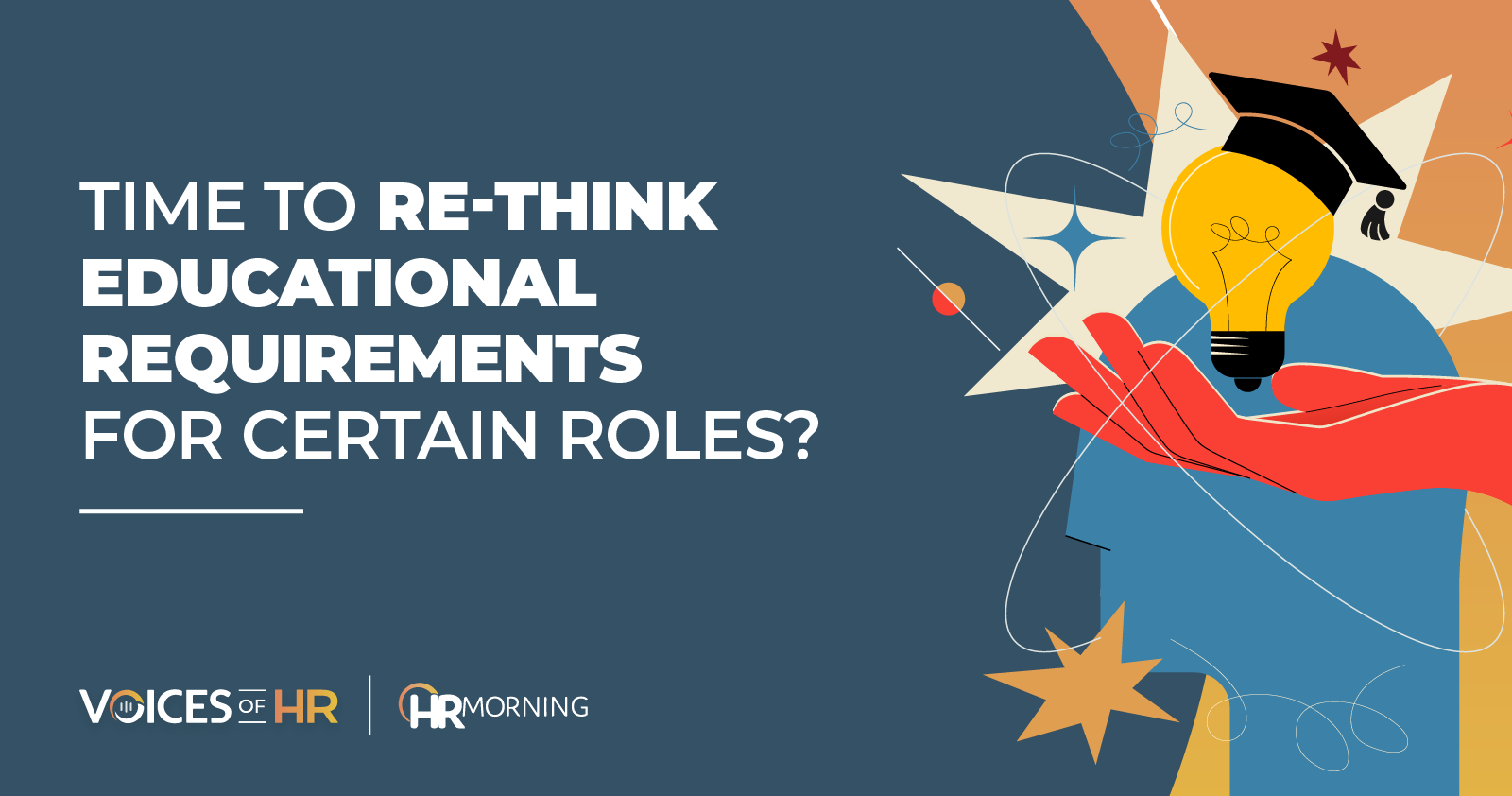As successful as Google is, would you believe that back in the early 2000s, the tech giant was lacking in educational diversity and “diversity of thought?” That’s according to Michael Watson, the head of global customer evangelism at Eightfold, a company specializing in AI-enabled talent intelligence platforms.
“They have since changed this,” he said in an episode of HRMorning’s “Voices of HR” podcast, titled “Workplace Diversity: How Artificial Intelligence (AI) Can Help Drive DEI Success.”
Watson shared a story of attending an HR seminar at Google HQ, and discovering to his chagrin that the company, at that time, “hired (graduates) exclusively out of Stanford and Cal. Berkeley and the Carnegie Mellons of the world, and these really high-tier schools.”
“I said, ‘This is all great, but you would never look at (hiring) someone like me,'” said Watson, an alumnus of Fresno State University in California.
The reaction? “When I said that, you would’ve thought that I called the baby ugly,” he said.
Roadblock to educational diversity
“To me, diversity covers many different spans … of course, gender and race … but it doesn’t just stop with those two,” Watson said, describing educational diversity as including veterans who didn’t attend college and workers who’ve been through “the school of hard knocks.”
“Companies talk about it all the time. ‘Oh, diversity, diversity. We care about it. We really want to do something.’ But I look at their job postings and it says ‘Bachelor’s (degree) required.’ And I think that is probably the No. 1 thing folks can do today to really increase their (DEI) pipeline of talent is to get rid of those educational requirements where they’re not necessary,” Watson said, noting that when he’s considering candidates for recruiter roles, he doesn’t pay close attention to their education.
He gave an example of how educational diversity could lead to hiring more women. “There’s great people out there everywhere, whether they went to school, (or) they didn’t go to school. I think about the single mom (who’s) been working for a company doing their books for 20 years. And maybe she never had the opportunity to go back and get a formal education. Are you telling me that she can’t work in a corporate finance job, running (accounts receivable) or (accounts payable) or some type of financial function? And the only thing that’s holding her back … (is) those educational requirements? It’s just ridiculous,” he said.
But that’s not to say there aren’t certain highly-skilled positions where education and certifications are critical. Watson named brain surgeons as one example of that. “It just comes down to your individual organization and being honest with yourself about who you are, what you’ve been in the past and where you’re trying to go,” he said.


